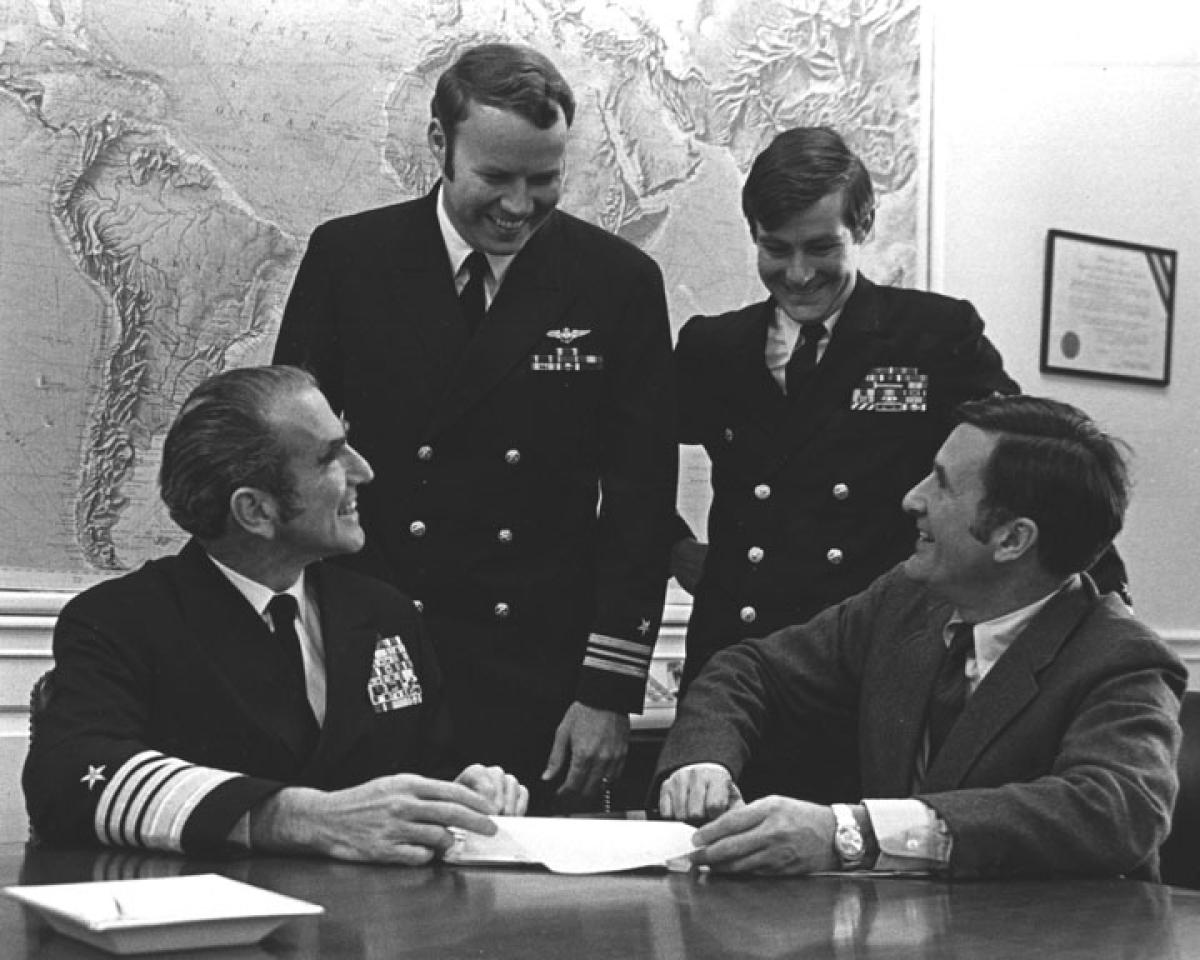Readers of Proceedings—and more than a few commanding officers, division officers, and surface warfare officers—are familiar with the work of recently retired Admiral James Stavridis. He is prolific and one of the Navy’s most voracious readers and industrious writers of the past 20 or 30 years, maybe more. It is welcome and refreshing news to hear that he is writing another memoir. But where are the others?
Where are the published memoirs, letters, or anecdotes from naval officers wearing stars on their collars? After 12 years and two wars, one of which has surpassed the Vietnam War in length, I search the bookshelves and scratch my head. There is a glaring hole on the shelf.
The last naval memoir written by a Chief of Naval Operations was in 1976. Thirty-eight years ago, Admiral Elmo Zumwalt published On Watch, an excellent book in which the author covers some of his greatest challenges in the Navy of the early 1970s. His chapter on Admiral Hyman Rickover, which includes Zumwalt’s infamous interview with the father of the nuclear Navy, is a classic. These fantastic recollections would never have been shared without Admiral Zumwalt’s decision to write them down and publish the work. And now 11—yes, eleven—Chiefs of Naval Operations have served since he left the stage, not to mention the naval officers who have come and gone: the Chairmen of the Joint Chiefs of Staff, Pacific Fleet Commanders, and Fleet Forces Commanders, many of whom left without adding a single page to our published naval history.
Now, of course, no clause or contract stipulates that one must write a memoir. This is not a requirement, it is a choice. An admiral might prefer to leave the pen on the desk for valid reasons. Silence is indeed sometimes the better part of valor. Our country’s civilian-military relationship and its success rests on the principle that elected officials direct the military. So when an officer reaches flag rank, particularly three or four stars, things suddenly become much more political. Disagreements between civilian masters erupt, and these are usually best kept off the pages of the Washington Post or out of the chapters of memoirs. We abhor a kiss-and-tell military culture, even though the genre sells well.
But some senior officers do write good books that illustrate disagreements with elected officials over U.S. national-security policy. They do so without airing past grievances or reverting to ad-hominem attacks. They address contentious policy decisions at the highest levels of the government both respectfully and objectively. In fact other branches of the military, the Army in particular, can point to a stack of books written by officers who have held the highest positions in their services in the past 25 years.
Aside from Generals Colin Powell, Norman Schwarzkopf, Wesley Clark, and, most recently, Stanley McChyrstal, there are surely others. The books may range in quality and insight, but the Army has a piece of its history recorded for posterity as seen through the eyes of these men, its senior leaders, during historic times. What do we have?
Fortunately, officers in the U.S. Marine Corps and sailors in the naval special-warfare community have something to say. For the past 12 years, they’ve been filling the bookshelves at an impressive rate. Admittedly, the United States has been fighting two land wars during that time, so the Army, Marines, and special forces have borne the brunt of combat. Books such as Nate Fick’s One Bullet Away: The Making of a Marine Officer and Mark L. Donald’s Battle Ready: Memoir of a SEAL Warrior Medic are just two among an abundance of books written by our comrades in arms. But we are still missing something.
Admiral Stavridis encouraged us all to “write, publish, and be heard.” This is an admirable goal. But our senior leadership should certainly do the same. Because someday a young officer is going to turn to the bookshelves and wonder what challenges the U.S. Navy faced in the early 21st century, and all he or she will see will be gaping holes where there should be bowing shelves.



